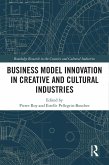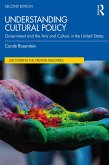The aim of this book is to explore the dynamics between various and often conflicting factors in the orchestra's quest for survival, and to show how these organizational dynamics relate to the orchestra's repertoire. By highlighting the importance of every organization's specific environment to which it needs to adapt, this book illustrates that the orchestra field is not a field that relies on best practices.
The book reflects on conventional as well as innovative orchestra models, making the comparative point of view relevant for academic or practice-based researchers, orchestra managers, policymakers and subsidizing bodies interested in sustainable and future-oriented orchestra management.
Dieser Download kann aus rechtlichen Gründen nur mit Rechnungsadresse in A, B, BG, CY, CZ, D, DK, EW, E, FIN, F, GR, HR, H, IRL, I, LT, L, LR, M, NL, PL, P, R, S, SLO, SK ausgeliefert werden.
"Orchestra Management provides very useful information, evidence-based through a variety of case studies, that helps to understand the complexity of current legitimacy issues in orchestras. Focusing precisely on the causal link between models and repertoires is both innovative and insightful. Highly recommended reading for orchestra managers and programmers." Janneke Slokkers, Freelance Artistic Manager, The Netherlands
"This book shows how organizational models can shape the artistic programming as well as approaches to urgent issues such as the development of new programming formulas, ageing audiences, and income diversification. In times were competition for funding amongst organizations increases, this book is likely to become a reference in the literature. Practitioners in the field of classical music and scholars of arts management will greatly benefit from the cases presented in this volume and from its extensive bibliography." Carlo Alberto Petruzzi, Arts Management Network









